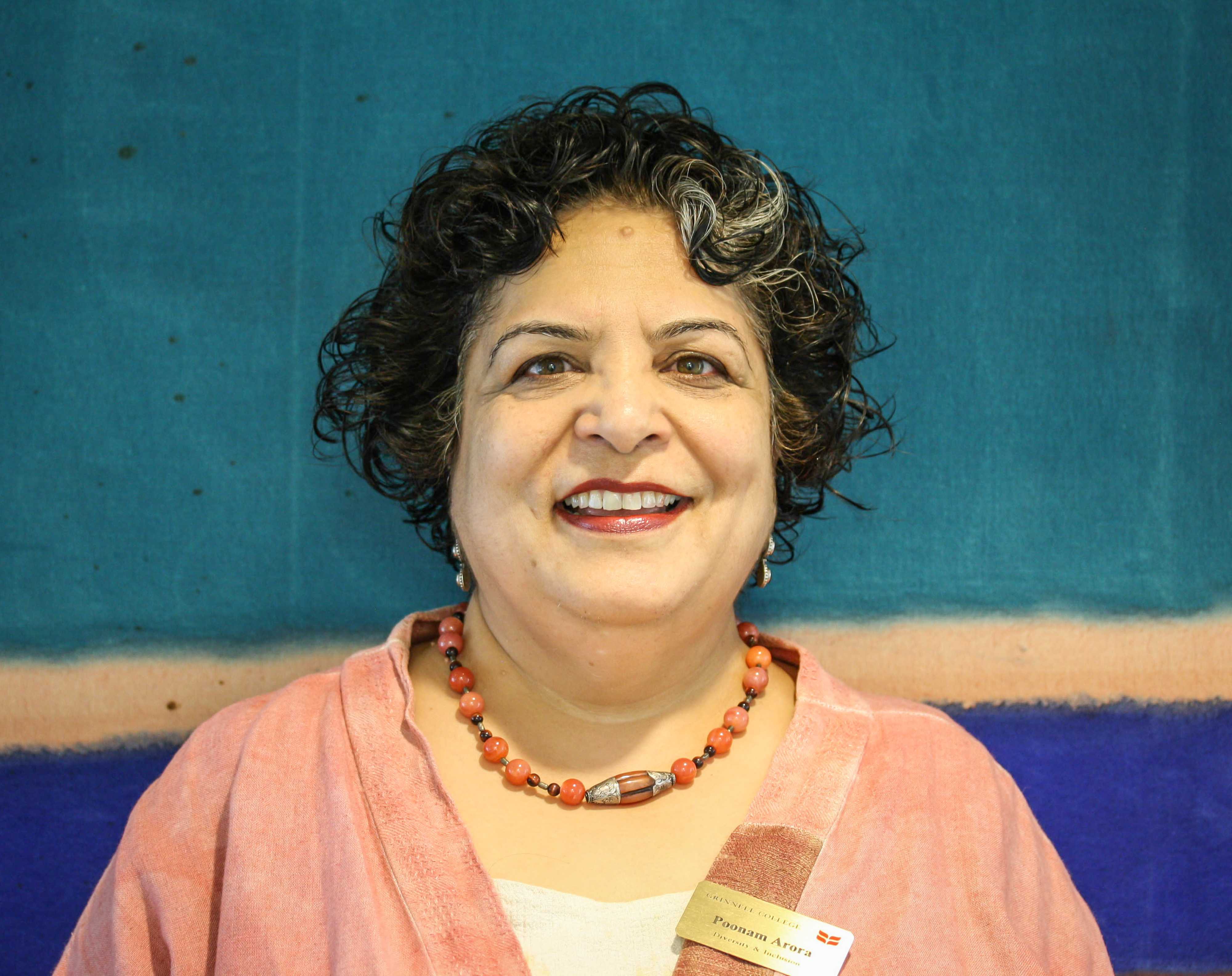By Geo Gomez
gomezgeo@grinnell.edu
Last semester, the issue of campus diversity generated unrest among the student body. Student groups such as the Concerned Black Students (CBS) were worried that Grinnell’s administration was not demonstrating enough transparency in their decisions involving campus diversity offices. The Office of Intercultural Engagement and Leadership was incorporated into Academic Affairs, it’s director Michael Benitez left his position and students complained that there was an overall lack of explanation for these changes.
The issue of communication was brought to President Raynard Kington’s attention by students who, responding to what they felt to be a threat to diversity on campus, organized massive poster sessions and student gatherings. An especially striking image was a series of posters strung together in the JRC to form the sentence, “IF YOU’RE NOT ANGRY YOU’RE NOT PAYING ATTENTION.” It was some of the most impassioned student activism the campus has seen in recent years. Towards the end of the year, President Raynard Kington invited seven students to Nollen House to discuss the matter. Twenty more students showed up and, although uninvited,  the entire group sat with Kington to detail their concerns.
the entire group sat with Kington to detail their concerns.
Looking back on the situation that developed last year, Kington acknowledged that there had been issues with staffing and communication.
“The biggest challenge we had last year was that we didn’t have a full permanent staff,” he said. “Related to that, we didn’t do a great job communicating where we were heading in terms of staffing and addressing issues.”
According to Kington, the goals in mind for this year’s staff are to be intellectual leaders among liberal arts colleges in how to approach diversity and to make sure the lived experiences of students are rich in diversity regardless of background.
This year, Poonam Arora has joined Grinnell as Associate Dean of the College for Diversity and Inclusion, as well as Chief Diversity Officer, and is focused on materializing a more tangible dedication to diversity on campus. In her new positions, Arora’s obligations lie with faculty, staff and students.
“We need to pay attention to the diversity dialogue starting on campus and continue to the local community. We need to pick up on conversations happening in the nation and the world, and then bring them to campus,” Arora said. “The most important is the Supreme Court decision in the Fisher vs. University of Texas case. We need to be in tune with it, contribute to it, show that we are reflecting on it and going forward.”
Arora’s approach to diversity also seeks to incorporate local perspectives for the sake of benefitting students. She is working on an initiative to move the annual Posse retreat to a hotel of the Meskwaki Native American tribe, in Tama, Iowa.
“They’re self-governing. Talk about self-gov, guys! Let’s compare models of self-gov. I want to move the [Posse] venue to the settlement and let the themes of this cultural dialogue inflect the retreat, not just do an occasional pow-wow just for the spectacle. We can have such amazingly rich conversations and it can show us alternative ways of thinking about our reality,” she said.
This change is an attempt to incorporate academic principles regarding diversity directly into student life, at least for some. But adding to the challenges in generating larger commitment to diversity, some students last year were largely unaware of the changes in Academic Affairs regarding diversity, while others disregarded the problem entirely. A student comment on the S&B website said that concerned students were merely “digging for worms.”
It is still too early for Arora to determine whether or not she thinks that there is an issue on campus about the different ways in which students view diversity. She does, however, think that diversity is a collaborative process.
“I’ll tell you how I wish [students] would view it. It’s not just about minority students saying ‘Pay attention to us.’ It’s about minority students saying ‘We have this perspective, let’s share it with the majority student.’ It’s the majority students saying ‘We are well-meaning, we are progressive thinking, we want to make a difference, and we don’t want to be put on a guilt trip, but here’s how we see it,’” Arora said. “I wouldn’t want us to fall into the mode of, ‘We have to change the world, and there are oppositions—the first one must be the administration.’ It is not. It just is not.”

















































